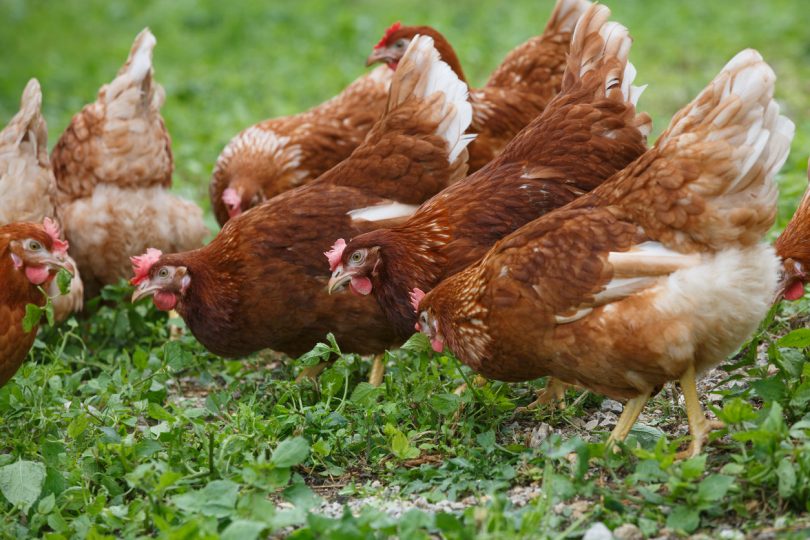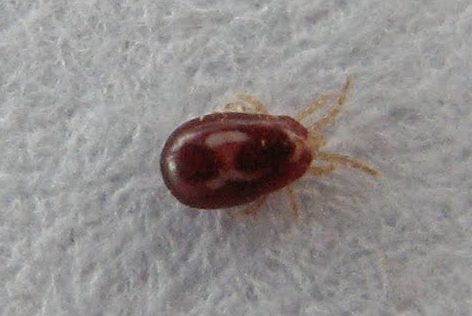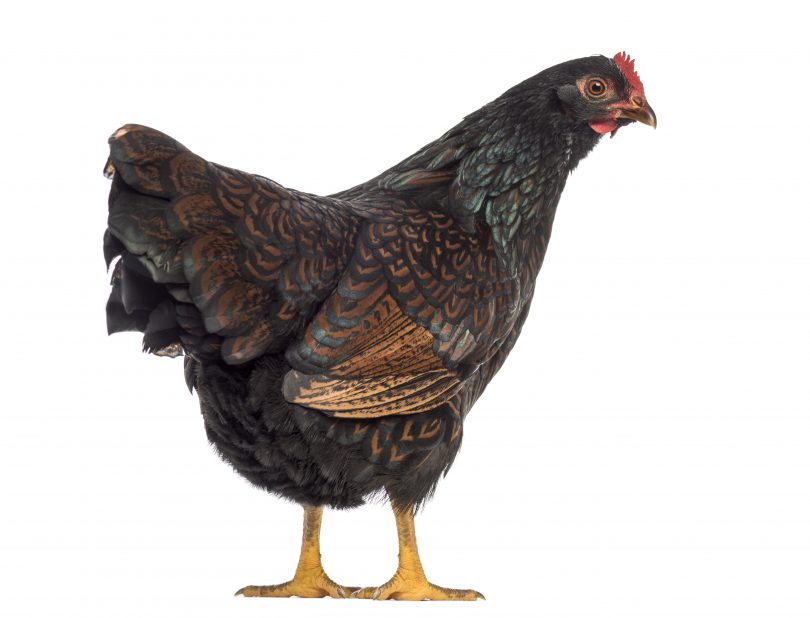
Keep your chooks safe from mites with these handy tips. Photos: Supplied.
With all the rain this summer the chook pen is an ideal breeding ground for scaly leg mites and red mites.
Mites are easy enough to manage but you need to be vigilant around this time of year.
The scaly leg mite burrows under the scales of a chook’s leg and feeds on keratin. It exudes a greyish waste which pushes the scales outwards and opens the leg flesh to infection causing constant pain and possibly lameness.

Leg mites can be debilitating to your chooks and are virtually microscopic.

A Red Mite.
Scaly leg mites are virtually microscopic.
To treat leg mites on the chook, paint their legs with vegetable oil, with a couple of drops of Tea Tree oil, and apply weekly then monthly.
If you have a bad infestation you can spray the roost and perches with Pyrethrum available from garden centres.
To contain mites, sprinkle Diatomaceous Earth in dust baths, provide a monthly supplement of Super Mash with garlic and sulfur, place aromatic herbs in the nesting boxes, and use nesting material that’s not hollow (eg pine needles, wood shavings).
Breed for February – The Barnevelder

Barnevelders can be kept as dual-purpose chicken.
Named after the Dutch town of Barneveld, this medium-heavy breed can lay up to 180-200 eggs a year.
Barnevelders can be kept as a dual-purpose chicken e.g. roosters for the table. They are hardy and good foragers, good winter layers and have a quiet disposition. They are sought after for their dark brown eggs.
They don’t mind confinement, are docile and react well with children. Roosters are known to nurture their young.
They can be pretty sneaky and tend to hide their eggs – a surprise when a Mamma wanders out with her new family! They make great Mums, although they are not especially prone to broodiness.
The original and most well-known Barnevelder is the double laced variety with a single vertical comb and yellow legs, but white, black, brown, partridge, blue and double laced blue varieties also exist. The rooster has a black breast and tail and lovely plumage with splashes of iridescent green, bronze and violet.
They have an upright stance, a broad breast and short wings carried high, making them poor flyers.
Barnevelders are a beautiful bird and well suited to our backyard.
Cheryl Nelson is the brains and heart behind Natural Chicken Health.
Subscribe HERE to the Natural Chicken Health Monthly Newsletter Vlog and follow Natural Chicken Health on Facebook.







